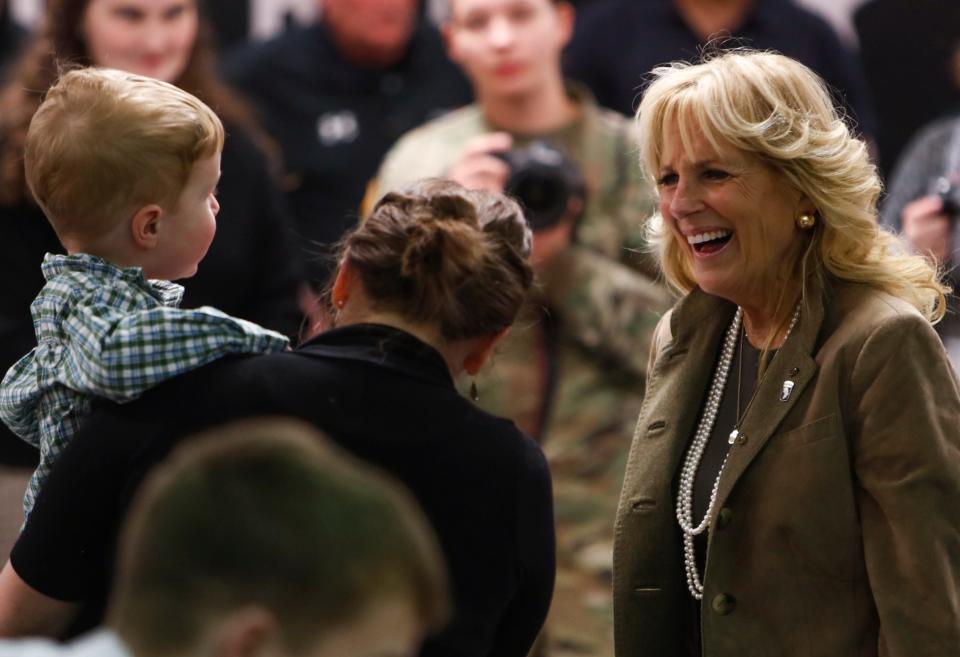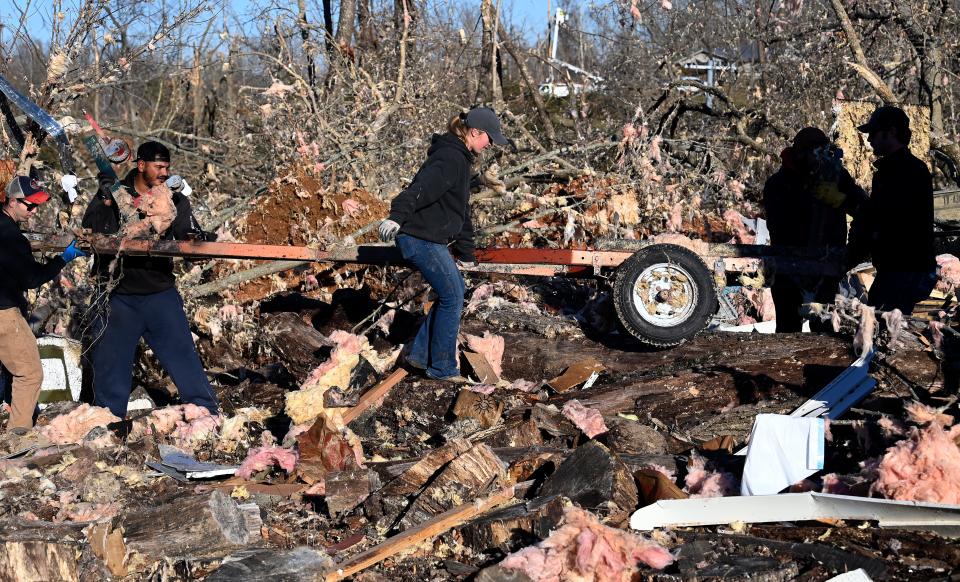How Fort Campbell is critical treating traumatic brain injury among troops
- Oops!Something went wrong.Please try again later.
Warfare results in serious physical and psychological impact on brain health often known as invisible wounds.
Subsequently, military medicine and sports medicine are more advanced in detecting and treating them than our emergency rooms. These problems are shared with members of the military serving our nation, allied NATO forces, and any forces engaged in warfare. Civilians are impacted, too. Sharing of solutions amongst military forces and with civilian populations is slow.
Nearly two years of brain health impact have accumulated for Ukrainians. Healthcare infrastructure in the East is destroyed. Some assets in the West are damaged. Service members stationed at Fort Campbell play a role in our national security plan.
On March 22, 2022, our First Lady, Dr. Jill Biden, an Army mother to her son, the late Army Major Beau Biden, said during her visit there:

“I am here today to tell you that the President and I are so proud that you, the members of the 101st Airborne Division, are helping keep our promise to NATO. We are holding Putin accountable for his war through diplomacy with crippling sanctions. We are providing Ukraine with economic, humanitarian, and security assistance. And the Screaming Eagles are there in Europe, standing with our allies and welcoming Ukrainian refugees.”
Another view: Third anniversary of Jan. 6 attacks show Americans have work to do on political divides
Fort Campbell is among 13 key brain injury centers
Fort Campbell as part of the Defense Intrepid Network is playing an ongoing role in shaping access to care for traumatic brain injury in emergency rooms everywhere. Onward, it will impact recovery for invisible wounds of the Ukrainian military and civilian population fighting to keep what is legally their land, home, and nation. All Ukrainians are exposed deeply and widely due to bombing and trench warfare.

What is working at the best level of chronic and acute care for brain injured patients? Science, medicine and healthcare for brain patients from injury or disease happens best at sports medicine and military medicine whose models are interdisciplinary, integrative and nimble.
The Defense Intrepid Network is made up of 13 Traumatic Brain Injury centers including the National Intrepid Center of Excellence at Walter Reed in Bethesda, Maryland; Landstuhl Region Medical Center in Germany; and Alaska’s Joint Base Elmendorf Richardson along with 10 Intrepid Spirit Centers including Tennessee and Kentucky’s Fort Campbell, Virginia’s Fort Belvoir, South Carolina’s Camp LeJeune, North Carolina’s Fort Liberty formerly Bragg, Texas’ Fort Cavazos formerly Hood, Washington’s Joint Base Lewis-McChord, California’s Camp Pendleton. Florida’s Eglin Air Force Base, Colorado’s Fort Carson, and Texas’ Fort Bliss.
Experts at Fort Campbell’s BACH, Blanchfield Army Community Hospital, have included a community outreach program to all civilian providers in its region welcoming access to chronic and acute concussion and PTSD care. This simple integrated innovation needs replicating. It embraces the divide through authentic conversation between providers.
A more robust system is needed to treat physical and psychological injuries
Besides sending a delegation to the National Intrepid Center of Excellence at Walter Reed in Bethesda, 14 Ukrainian government officials and doctors visited Philadelphia Veteran’s Affairs Medical Center in mid-June.
Resiliently, they show that the present time is best to plan the replacement of completely bombed out hospital infrastructure in the East, repairing what remains in the West and thinking long-term about Ukraine’s future.
Their mission is to find out how to build a more robust mental health system for military and civilian patients coping with physical injury and psychological trauma. David Oslin, the Philadelphia Veterans Affairs chief of the behavioral health division, during his presentation with his team to them on how to change the perception of mental healthcare, was asked: “How do you encourage primary care physicians to screen for mental health issues? How do you leverage smartphone apps to encourage patients to monitor their own well-being?”
E. Teresa Touey is founder of Spotlight on BIO Advances.
This article originally appeared on Nashville Tennessean: Traumatic brain injury: Fort Campbell is critical to treating troops

